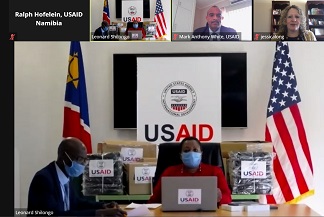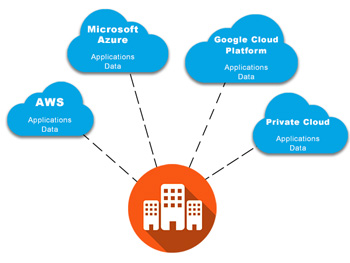
U.S donates high tech equipment to health ministry

At a virtual ceremony held on Thursday, the United States donated 176 tablet and 53 laptop computers, 250 remote temperature monitoring devices and 2,000 terabytes in hard-drive capacity to the Ministry of Health and Social Services to support the country’s COVID-19 vaccine roll-out.
The electronic equipment, worth approximately N$9.6 million, will be used for data entry at vaccination sites and for monitoring purposes.
“Getting the population vaccinated is key to fighting COVID-19 in the country and for the world,” said Jessica Long, the Chargé d’Affaires at the U.S. Embassy during a virtual handover ceremony in Windhoek. “The U.S. government remains committed to supporting the Ministry of Health and Social Services in its battle against this horrible pandemic.”
In addition to the computer equipment, the United States Agency for International Development (USAID) also funded the production of 5,000 registers, 100,000 forms and 750,000 vaccination cards, as well as 11 district level trainings for over 500 health ministry staff.
The US Embassy said that the United States recognizes that COVID-19 is a global challenge requiring a global response. The Biden-Harris administration has prioritized defeating COVID-19 through multilateral approaches to stop the global pandemic, increasing vaccine production and global access, strengthening supply chains, hastening economic recovery, and preparing for future pandemics.
To date, the United States government has provided N$100 million in support of Namibia’s COVID-19 response.
 At the virtual handover ceremony is from the top left Acting USAID country representative, Mark White; U.S. Chargé d’Affaires, Jessica Long, Jeremiah Nghipundjwa, Acting Executive Director of the Ministry of Health and Social Services; and Namibia’s Deputy Minister of Health and Social Services, Esther Muinjangue.
At the virtual handover ceremony is from the top left Acting USAID country representative, Mark White; U.S. Chargé d’Affaires, Jessica Long, Jeremiah Nghipundjwa, Acting Executive Director of the Ministry of Health and Social Services; and Namibia’s Deputy Minister of Health and Social Services, Esther Muinjangue.












































